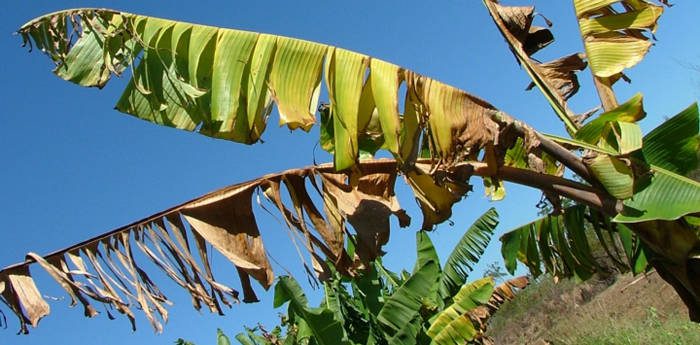The University of the West Indies (UWI) will on Wednesday host a sensitisation workshop on the threat of fusarium wilt, commonly known as “Panama disease” of bananas and plantains.
The Food and Agriculture Organisation (FAO) said fusarium wilt is among the most destructive diseases of the banana plant.
Fusarium wilt is caused by a fungus and has been affecting banana plantations severely in Southeast Asia.
It was recently it has been reported — for the first time outside Asia — in Mozambique and Jordan.
The workshop will include a technical feature on impacts, prevention and management of fusarum wilt in the Caribbean region, and will be led by Cuban professional, Dr. Luis Pérez-Vicente.
The one-day event will be followed by a five-day regional workshop on the prevention and diagnostic of fusarium wilt, to be held in Trinidad from May 5 – 9.
The five-day workshop will include a wide range of topics, including banana production and its socio economic importance in the Caribbean as well as banana diseases with emphasis in exotic pathogens to the Latin America and the Caribbean region.
The workshop will also will also take a historic overview of fusarium wilt, the current situation, and potential impact on the region
These workshops are collaborations among Caribbean Agricultural Research & Development Institute, Inter-American Institute for Cooperation on Agriculture, The Food and Agricultural Organisation, and Trinidad and Tobago’s Ministry of Food Production.
The current strand of the disease infects the Cavendish varieties of bananas, which dominate global trade but are also important for domestic markets, as well as some other cultivars used for local consumption and marketing.
CARDI said that once the disease is present in a field it cannot be controlled effectively by currently available management practices.
Prevention and quarantine are the most effective means of control of this disease and CARDI said that the international community and countries at risk are advised to pay attention to the importance of preventive measures.
Currently there are numerous efforts by regional stakeholders including the research institutions, the banana industry, governments and international organizations to prevent the spread of the disease, but in view of the challenges associated with the control of the disease and the risk posed to the global banana supply, it is evident that these need to be intensified, CARDI further said.
The FAO and its partners, including the World Banana Forum (WBF), The African Foc TR4 consortium, the scientific community and the banana industry are among those making efforts to increase awareness and promote implementation of the preventive measures.






